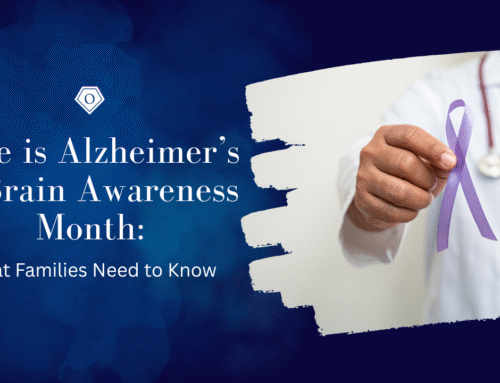Alzheimer’s disease, a progressive neurodegenerative disorder, poses significant challenges not only for those diagnosed but also for their caregivers. As the disease advances, patients experience memory loss, confusion, and difficulty with cognitive functions, which can make daily living increasingly difficult. In managing Alzheimer’s, the importance of routine and structure cannot be overstated. Establishing a consistent schedule and a structured environment plays a crucial role in enhancing the quality of life for patients and easing the burden on caregivers. Home health care services can be valuable in this endeavor, providing professional support and expertise to maintain the necessary routine and structure.
Why Routine and Structure Matter
Reduces Anxiety and Confusion:
Alzheimer’s patients often experience anxiety and confusion due to their inability to remember recent events or recognize familiar surroundings. A structured routine provides predictability, which can be comforting. Knowing what to expect daily reduces uncertainty and helps patients feel more secure.
Enhances Independence:
Routine and structure can empower Alzheimer’s patients by allowing them to engage in daily activities with minimal assistance. Repetitive schedules help reinforce memory through repetition, enabling patients to perform tasks more independently over time.
Improves Sleep Patterns:
Consistent daily routines, including set times for waking up, meals, and bedtime, can regulate the body’s internal clock. This regularity helps improve sleep patterns, often disrupted in Alzheimer’s patients.
Promotes Physical Health:
Regular schedules incorporating physical activities, balanced meals, and adequate rest are vital for maintaining physical health. Structured routines ensure patients receive the necessary nutrition, exercise, and rest to support their overall well-being.
Facilitates Cognitive Functioning:
Engaging in regular cognitive activities, such as puzzles, reading, or simple tasks, within a structured routine can stimulate the brain. This stimulation helps maintain cognitive functions and slows the progression of cognitive decline.
The Role of Home Health Care
Home health care services are pivotal in establishing and maintaining routines and structure for Alzheimer’s patients. These services bring professional care into the comfort of the patient’s home, offering tailored support to meet individual needs.
Personalized Care Plans:
Home health care providers develop personalized care plans that include structured routines tailored to patients’ preferences and abilities. These plans ensure that patients receive consistent care aligned with their unique needs.
Professional Expertise:
Trained caregivers understand the complexities of Alzheimer’s disease and are skilled in managing its symptoms. Their expertise helps create an environment that minimizes stress and maximizes comfort for the patient.
Consistency and Reliability:
Home health care provides consistent and reliable support, crucial for maintaining routine and structure. Regular visits from caregivers ensure that daily activities are carried out consistently, reinforcing the patient’s routine.
Respite for Family Caregivers:
Family caregivers often face significant stress and burnout. Home health care offers respite by sharing the caregiving responsibilities, allowing family members to take breaks while knowing their loved one is in capable hands.
Social Interaction and Companionship:
Professional caregivers provide social interaction and companionship, essential for emotional well-being. Regular social engagement within a structured routine helps combat feelings of isolation and loneliness often experienced by Alzheimer’s patients.
Monitoring and Adaptation:
As Alzheimer’s disease progresses, care needs evolve. Home health care providers continuously monitor the patient’s condition and adapt care plans accordingly, ensuring that the routine remains effective and beneficial.
The importance of routine and structure in Alzheimer’s care cannot be overstated. These elements provide stability, reduce anxiety, and enhance the quality of life for patients. Home health care services offer invaluable support in establishing and maintaining these routines, bringing professional care and personalized attention directly to the patient’s home. By integrating home health care into Alzheimer’s care plans, families can ensure that their loved ones receive the consistent, compassionate, and effective care they need to navigate the challenges of this disease.
Alzheimer’s and Dementia Care
Onyx Home Care’s neurological disorder care is built around a system of support. This service includes skilled home care as well as a unique program that centers on the patient’s interests and stage of illness. Our goal is to see happy family members, patients and caregivers. Often times, caregivers feel remote. Our team includes each person in the home care process to provide inclusive care that helps the patient thrive.






